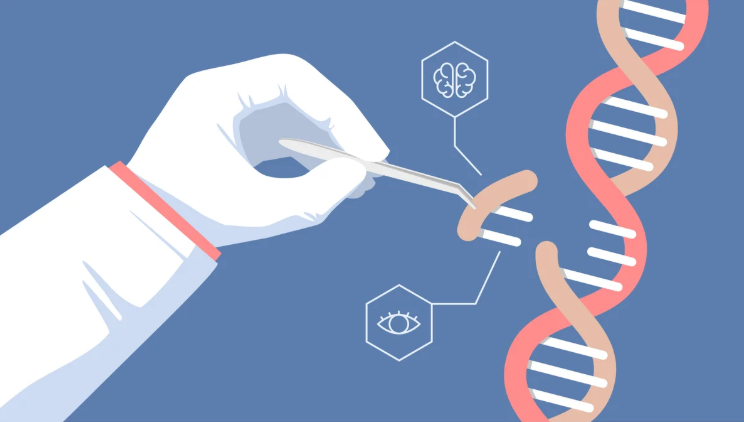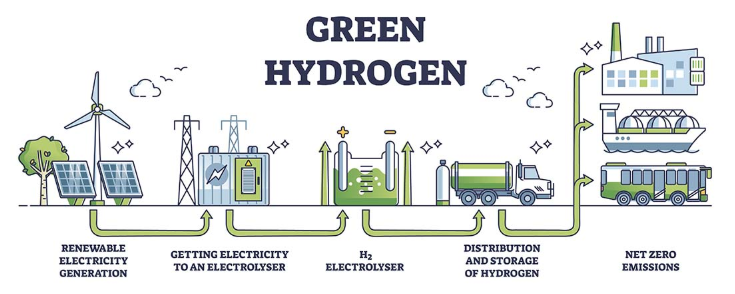2024's Technology Hits
- Amanda Munandar
- Jan 3, 2025
- 5 min read
As the year is wrapping up, let's spotlight five major technological advancements, some of which will likely shape innovation and set the stage for 2025.
AI's World
AI has become one of the most powerful neural networks ever built. Its ability to "think for itself" and generate responses was dazzling, but also disturbing. This new technology has swiftly gone from an experimental prototype in 2022 - to a must-have, everyday life, consumer product in 2024 (Heikkilä, 2024). Beyond chatbots and image generators, generative AI is now helping us in fields like healthcare, diagnostics, and education. In 2024, this advancement was further cemented when the Nobel Prize in Physics was awarded to John J. Hopfield and Geoffrey E. Hinton for their groundbreaking contributions to artificial neural networks. Their work laid the foundation for modern machine learning and generative AI systems, which now process language, images, and complex datasets at large scales (The Nobel Prize in Physics 2024, n.d.).
Charting where AI will go in the future is undetermined and terrifying. Issues in managing biases, intellectual property conflicts, and cybersecurity risks still loom (Elias, 2024). Generative models have already faced legal conflicts over copyright infringement. Moreover, the misuse of AI for deepfakes and disinformation in the context of political campaigns threatens the trust in media and democratic institutions (Heikkilä, 2024). Efforts in the future will likely focus on mitigating these issues while still utilizing AI's potential.

Weight-loss Drugs
Obesity is a leading cause of death - either by heart disease, diabetes, or cancer as a result (Obesity Medicine Association, 2024). Anti-obesity drugs like Wegovy and Ozempic have gained popularity, offering new hope in the fight against obesity. Wegovy and Ozempic (a diabetes drug that’s often prescribed off-label for weight loss), mimic a hormone that the intestine releases after eating, causing you to feel full. They suppress appetite and promote weight loss, showing a shift in how chronic conditions are managed. Patients inject the drugs once a week at home and can lose about 12% to 15% of their body weight (though many hit a plateau after that).
These drugs aren’t perfect—common side effects include nausea, diarrhea, and vomiting. Many patients must stay on the drugs for life to keep the weight off, and the long-term impacts of these treatments remain unknown (University of California San Francisco, 2023). The drugs are also expensive, costing more than $1,000 per month, and most insurance plans don’t cover them for weight loss. Its accessibility outside the U.S is also another concern. As research continues, these medications may pave the way for more inclusive and effective weight-loss solutions.

Apple Vision Pro
When Apple released Apple Vision Pro in late 2024, with a sparkling display that overlays digital content onto your real-world surroundings, people were impressed. The headset emerged as a strong step into mixed reality, introducing a "spatial computer" that overlays digital elements onto the physical world. With ultra-high-resolution micro-OLED displays, it offers immersive applications in entertainment, work, and communication (Smith, 2023).
While the $3,499 price tag has sparked debates, its potential to define mixed-reality computing's future is unmatched. The Vision Pro has shown promise for remodeling everyday interactions, from watching movies to remote collaboration with others.

CRISPR Gene-Editing
CRISPR (Clustered Regularly Interspaced Short Palindromic Repeats) is a revolutionary gene-editing technology that allows scientists to precisely modify DNA sequences in living organisms. It leverages the natural defense mechanism of bacteria to target and cut specific genetic material, enabling advancements in medicine, agriculture, and biotechnology.
The year saw groundbreaking advances in CRISPR technology, including the FDA's approval of the first gene-editing treatment for sickle cell anemia (Olaghere, 2023). These developments highlight CRISPR's growing role in personalized medicine, enabling precise DNA modifications to combat genetic disorders. Additionally, its applications in synthetic biology, from bioengineered materials to organ transplants, promise to reshape healthcare and sustainability efforts.
One major advancement involves the editing of pig organs to remove genes that could trigger human immune responses or viral activation. This approach has already led to experimental xenotransplants, where pig kidneys and hearts have been successfully transplanted into humans, sustaining critical functions in early trials (Mullin, 2024). Such breakthroughs aim to pave the way for CRISPR-modified organs to become a reliable solution for patients awaiting life-saving transplants (Office of the Commissioner, 2023). As research progresses, the goal is not only to solve organ shortages but also to provide safer, more effective transplantation options, entering a new era of regenerative medicine.

Green Hydrogen Production
Hydrogen is the most abundant element in the universe. As the world pushes towards decarbonization, using green hydrogen as fuel stands out as a game-changer. In 2024, advancements in catalyst technology and optimization of electrolysis systems significantly improved the energy efficiency and cost-effectiveness of green hydrogen production. Additionally, breakthroughs in integrating fluctuating renewable energy sources like wind and solar enabled more consistent and scalable hydrogen generation. This has real-world impact in heavy industries like steelmaking and chemical production, which are notorious for their carbon footprints (Global Hydrogen Review 2024 – Analysis - IEA, 2024).
This wonder fuel is also a versatile player in sustainable transportation. Think hydrogen-powered trains, trucks, and even airplanes buzzing through the skies. Countries like Germany and Japan are already building hydrogen refueling networks (Amann & Carey, 2024).
Of course, there are challenges, particularly the high costs and lack of infrastructure. But as investment and innovation ramp up, green hydrogen is on track to drop in price and be more in use (Wsj.com, n.d.).

References
Amann, C., & Carey, N. (2024, August 1). Big truckmakers bet on hydrogen to extend combustion engine life.
Elias, J. (2024, June 12). Google execs warn company’s reputation could suffer if it moves too fast on AI-chat
technology. CNBC. https://www.cnbc.com/2022/12/13/google-execs-warn-of-reputational-risk-with chatgpt-like-tool.html
Global Hydrogen Review 2024 – Analysis - IEA. (2024, October 1). IEA.
Heikkilä, M. (2024, August 4). Google DeepMind’s new Gemini model looks amazing—but could signal peak AI
hype. MIT Technology Review. https://www.technologyreview.com/2023/12/06/1084471/google-deepminds-new-gemini-model-looks-amazing-but-could-signal-peak-ai-hype/
Heikkilä, M. (2024, December 5). The US Department of Defense is investing in deepfake detection. MIT
Technology Review. https://www.technologyreview.com/2024/12/05/1107961/the-us-department-of-defense-is-investing-in-deepfake-detection/
Mullin, E. (2024, May 13). The first person to receive a pig kidney transplant has died. WIRED.
Obesity Medicine Association. (2024, June 4). Rising obesity rates in America: a public health crisis. Obesity
Medicine Association. https://obesitymedicine.org/blog/rising-obesity-rates-in-america-a-public-health-crisis/
Office of the Commissioner. (2023, December 8). FDA Approves First Gene Therapies to Treat Patients with
Sickle Cell Disease. U.S. Food And Drug Administration. https://www.fda.gov/news-events/press-announcements/fda-approves-first-gene-therapies-treat-patients-sickle-cell-disease
Olaghere, J. (2023, December 14). I received the new gene-editing drug for sickle-cell disease. It changed my
life. MIT Technology Review. https://www.technologyreview.com/2023/12/04/1084209/vertex-exacel-approval-gene-editing-sickle-cell-disease-patient/
Smith, M. S. (2023, December 18). These minuscule pixels are poised to take augmented reality by storm. MIT
Technology Review. https://www.technologyreview.com/2023/12/20/1084518/micro-leds-micro-oleds-augmented-reality-ar/
The Nobel Prize in Physics 2024. (n.d.). NobelPrize.org.
University of California San Francisco. (2023, September 6). Are the Newest Weight Loss Drugs Too Good to
be True? | UC San Francisco. Are The Newest Weight Loss Drugs Too Good to Be True? | UC San Francisco. https://www.ucsf.edu/news/2023/09/426081/are-newest-weight-loss-drugs-too-good-be-true
Wsj.com. (n.d.).
Images
Mohamed, A. (2024, August 4). Customer Insights Research: A Comprehensive guide. Aim Technologies. https://www.aimtechnologies.co/customer-insights-research-a-comprehensive-guide/
Reuters. (2024, June 17). Explainer: What other health conditions might weight-loss drugs treat? Reuters. https://www.reuters.com/business/healthcare-pharmaceuticals/what-other-health-conditions-might-weight-loss-drugs-treat-2024-01-02/
Apple. (n.d.). Apple Vision Pro. https://www.apple.com/apple-vision-pro/
Sufian, S., & Garland-Thomson, R. (2024, February 20). The dark side of CRISPR. Scientific American. https://www.scientificamerican.com/article/the-dark-side-of-crispr/
Explainer – The economics of green hydrogen in Australia (Part 1). (2023, June 19). Australian Institute for Business and Economics - University of Queensland. https://aibe.uq.edu.au/article/2023/03/economics-of-green-hydrogen-in-australia-part-1
Comments